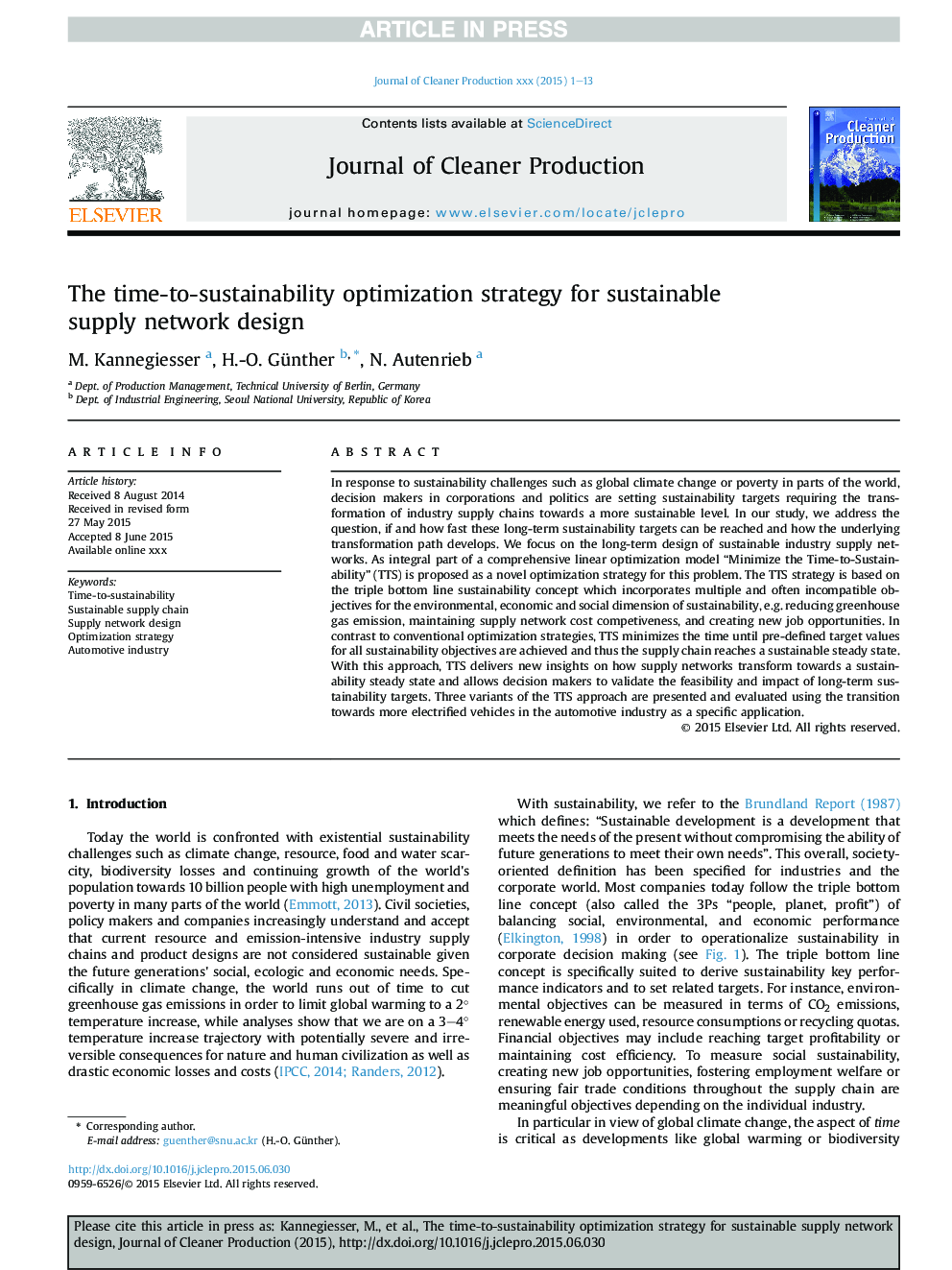| Article ID | Journal | Published Year | Pages | File Type |
|---|---|---|---|---|
| 10688177 | Journal of Cleaner Production | 2015 | 13 Pages |
Abstract
In response to sustainability challenges such as global climate change or poverty in parts of the world, decision makers in corporations and politics are setting sustainability targets requiring the transformation of industry supply chains towards a more sustainable level. In our study, we address the question, if and how fast these long-term sustainability targets can be reached and how the underlying transformation path develops. We focus on the long-term design of sustainable industry supply networks. As integral part of a comprehensive linear optimization model “Minimize the Time-to-Sustainability” (TTS) is proposed as a novel optimization strategy for this problem. The TTS strategy is based on the triple bottom line sustainability concept which incorporates multiple and often incompatible objectives for the environmental, economic and social dimension of sustainability, e.g. reducing greenhouse gas emission, maintaining supply network cost competiveness, and creating new job opportunities. In contrast to conventional optimization strategies, TTS minimizes the time until pre-defined target values for all sustainability objectives are achieved and thus the supply chain reaches a sustainable steady state. With this approach, TTS delivers new insights on how supply networks transform towards a sustainability steady state and allows decision makers to validate the feasibility and impact of long-term sustainability targets. Three variants of the TTS approach are presented and evaluated using the transition towards more electrified vehicles in the automotive industry as a specific application.
Related Topics
Physical Sciences and Engineering
Energy
Renewable Energy, Sustainability and the Environment
Authors
M. Kannegiesser, H.-O. Günther, N. Autenrieb,
